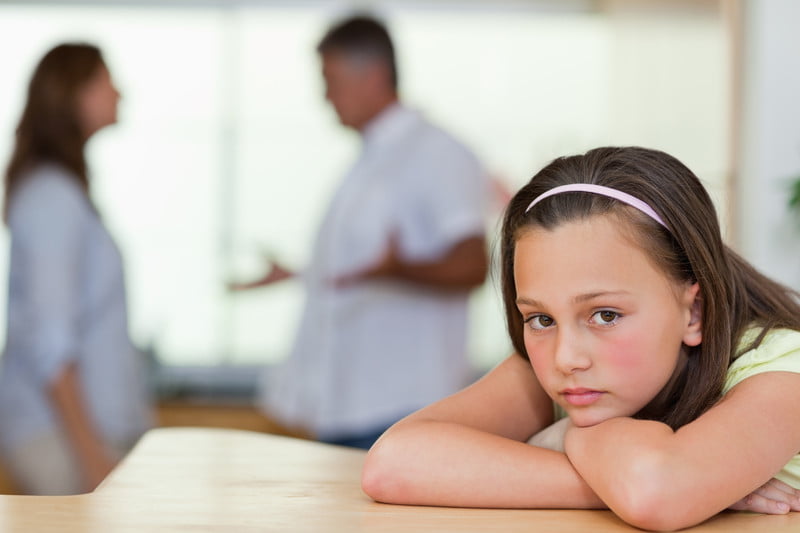
When a couple splits up, whether they were married or not, the courts will ultimately decide which parent has the kids and when – unless the parents come to an agreement on their own. Joint custody is often best for most children as long as the parents can get along. Every parent who gets divorced should understand the basics of child custody. In some states, this is called the Allocation of Parental Responsibility, which means decision making ability of either parent, and each parent has his or her own ‘parenting time’ with the kids.
Physical and legal custody are the two main types and these may be arranged by the divorcing couple, with help from a third party, such as a mediator, or through the local court system. Joint custody is a common arrangement and it is available to many divorcing couples. The first step to getting joint custody is working with an experienced family law attorney for a free consultation.
Getting Joint Custody is Possible!
Joint custody is possible when parents share physical and/or legal custody. Physical custody is actual caregiving and legal custody (allocation of parental responsibility) is the responsibility to make decisions regarding the education, healthcare, religion, and other important aspects of childrearing. When parents share custody equally, they split time with children evenly and have equal responsibility for making decisions regarding their children.
Though this sounds like the ideal form of child custody during divorce, a true joint custody arrangement with equal (50/50) parenting time is not always that common. It can be disruptive to the lifestyle of the child and stressful for parents who must schedule time with children around work and other obligations. A more common arrangement involves one parent having primary physical custody while the other receives visitation (parenting time), with both parents sharing joint legal custody. This allows a parenting schedule that might work better for kids while still ensuring that both parents have equal rights to decision making abilities.
A parent who is divorcing should discuss the possibility of getting joint custody with a family law attorney. After a frank discussion about having the children split living time evenly, the parent may realize that this arrangement could be detrimental. Attorney and client can then work together to prepare a case for joint legal custody and either primary physical custody or visitation.
When Is Joint Custody Not Possible?
There are man reasons why joint custody or an unequal amount of parenting time are inappropriate. Sometimes it is not in the best interests of the kids for both parents to have equal input on decision making. If the other parent is not physically or mentally fit to care for the children, the other parent may decide to file a petition for sole custody in divorce (possibly called a “Petition for Sole Custody” or “Petition for Primary Allocation of Parental Responsibility”). If this is awarded, the petitioning parent will assume the primary physical and legal responsibility for the children. This is frequently ordered by the court in certain circumstances such as when the other parent has a substance abuse issue or is considered harmful to the children. Courts expect the petitioning parent to prove very specific elements that might be listed in the law, so child custody help from an attorney is recommended.
No Joint Custody If Co-Parenting Won’t Work
Other reasons why a parent might be awarded primary allocation of parental responsibility or sole custody include when the parents just can not get along. The goal of family law courts is to ensure that the best interests of the kids takes precedence to anything else. If two parents frequently fight over pick-up and drop-off times, doctors appointments, or extracurricular activities, a court might order that one parent have priority over the other parent for certain decisions. The court can order sole custody or primary decision making over one or multiple issues to make sure that a decision is made in a timely manner. When parents are unable to co-parent, the child should not suffer because of inaction. Awarding one parent sole custody avoids this and allows decisions to be made for the child while still allowing for the possibility of the other parent filing a motion with the court to contest something that is substantial (such as a dangerous activity or elective surgery).
Next Steps for Joint Custody
For joint custody to work, the parents must be able to put their feelings for each other aside and make decision that are best for their kids. Family law courts and divorce judges want the parents to co-parent – and most states laws start from the premise that each parent has an inherent right to their children and that each parent is physically and mentally fit to have joint custody. From that starting point, it is up to each parent to prove that this is true or that it isn’t true. But the courts always favor getting bot parents to a place where co-parenting is possible.
Begin by seeking counseling – and ask that your soon-to-be ex be involved as well. There are specific parenting classes that can be found online or in person for parents to attend that help each parent learn tips to work together. Therapists have specific programs that they work with divorcing parents to help the parties work together. This is sometimes called “communication therapy” and it focuses on the parents speaking nice to each other and learning how to work together for a common goal – raising their children in a conflict free manner.
Final Thoughts
The ability to win custody during a divorce hinges upon being able to prove that you are the best caregiver for your children. Both parents initially have equal rights to physical and legal custody so the parent who wants sole or primary custody must make a strong case. But, because the courts know that co-parenting is what is best for the kids, the goal, whenever possible, should be to find a way to get along and move forward in a positive manner for your family. Experienced child custody attorneys that are good at their job work with parents to move them toward a positive outcome – do what’s best for your family!



I’m paying child suppot for my two kids. Both my kids are living with me. My daughter is going on 15 this march and my son is 16. They both want to live with me foer now on. How can i go about getting full custody of my kids.. Thank you
If your kids are living with you full-time, and they have been for some time, it is important for you to immediately file a petition for modification of custody and show that you have the kids in your possession.